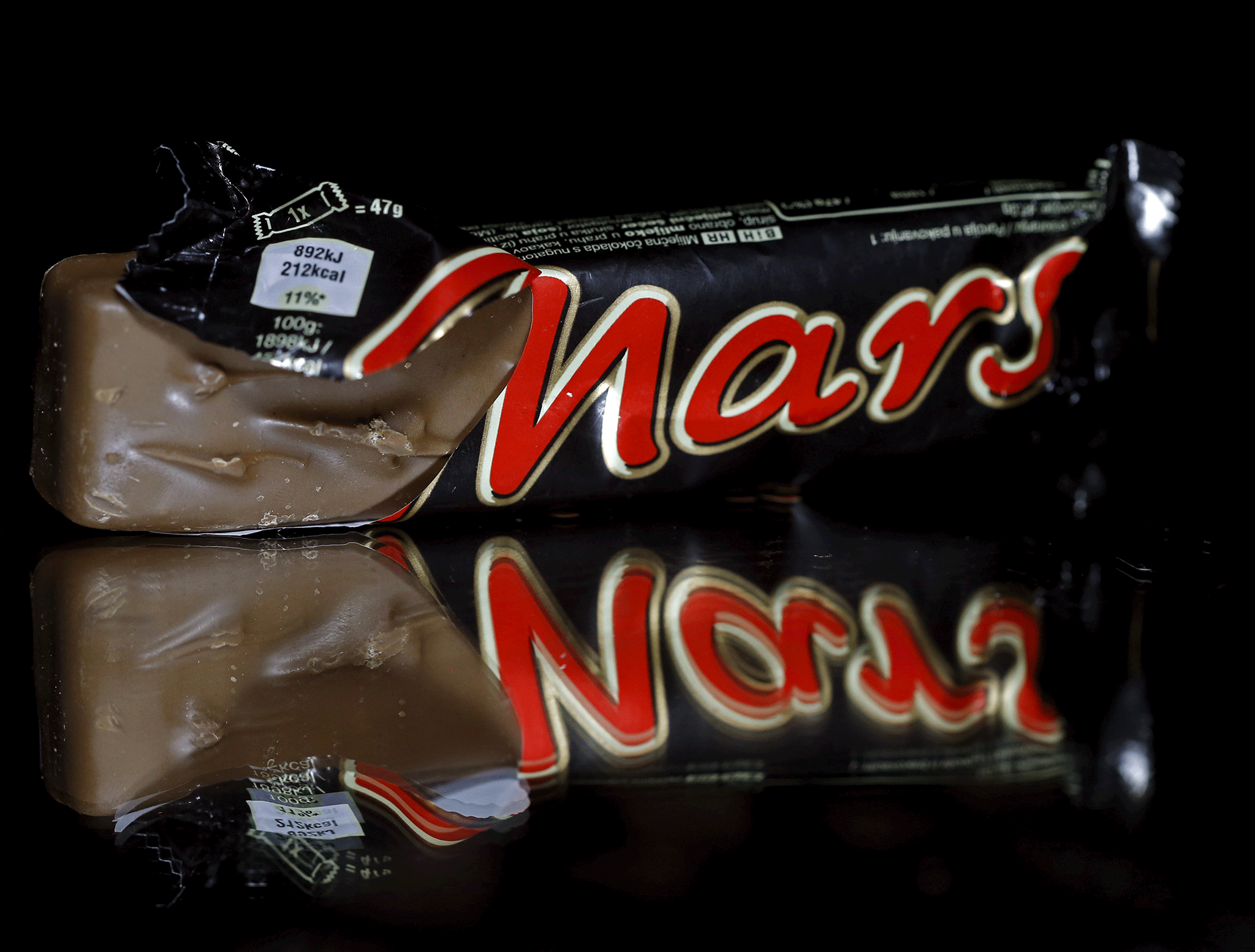Brexit: Mars bars face sharp price hikes without good trade deal, chocolate maker says
All confectionery would be slapped with 30% tariffs under hard Brexit if UK is forced to trade with EU under World Trade Organisation rules

Your support helps us to tell the story
From reproductive rights to climate change to Big Tech, The Independent is on the ground when the story is developing. Whether it's investigating the financials of Elon Musk's pro-Trump PAC or producing our latest documentary, 'The A Word', which shines a light on the American women fighting for reproductive rights, we know how important it is to parse out the facts from the messaging.
At such a critical moment in US history, we need reporters on the ground. Your donation allows us to keep sending journalists to speak to both sides of the story.
The Independent is trusted by Americans across the entire political spectrum. And unlike many other quality news outlets, we choose not to lock Americans out of our reporting and analysis with paywalls. We believe quality journalism should be available to everyone, paid for by those who can afford it.
Your support makes all the difference.Fans of Mars bars had better hope that Theresa May secures a good trade deal with the EU or the price of the chocolate will rise sharply, a senior executive at the company has said.
A hard Brexit, where the UK ends up trading with the EU under World Trade Organisation rules, would mean 30 per cent tariffs imposed on confectionery imports.
This will inevitably be passed on to consumers and could threaten jobs, Fiona Dawson, global president of Mars Food, will say in a speech to the American Chambers of Commerce in Brussels on Friday.
Much of the debate around tariff increases has so far focused on financial services and the car industry, but Mars is attempting to highlight the importance of the food industry.
The company employs 3,800 workers in the UK and, like many other businesses in the food sector, relies on open borders as it uses supplies from all over the world and is packaged and sold in a variety of countries.
“The absence of hard borders with all their attendant tariff, customs and non-tariff barriers allows for this integrated supply chain, which helps keep costs down,” Ms Dawson will say.
“The return of those barriers would create higher costs, which would threaten that supply chain and the jobs that come with it,” Ms Dawson will say.
Prices of other foods could also face big price hikes without a friendly trade deal. Under WTO rules, animal products would be taxed 20 per cent, cereals more than 15 per cent and fish and fruit more than 10 per cent.
Significant new tariffs would also apply outside the food sector, notably in the area of clothing and textiles.
Prices of many famous brands have already risen as a result of the collapse in the value of the pound.
Mars campaigned for Britain to stay in the EU but now says focus must be concentrated on securing as free and open trade as possible after Brexit.
“There can be no economic advantage in either side restricting trade with a large market situated on its doorstep. In simple terms, if the UK and the EU fail to agree on a new preferential deal, it will be to the detriment of all,” Ms Dawson will say.
“Imposition of significant trade barriers would ultimately hurt everyone and undermine, rather than strengthen, European unity.“
Lib Dem MP Tom Brake said: "This shows the threat posed to living standards by a hard Brexit.
"People with a sweet tooth risk being left with a sour taste in their mouths because of this Government's reckless plans to leave the Single Market.
"There is already Brexit squeeze on living standards caused by the plunging pound and higher prices. Crashing out of the EU without a deal would mean more price hikes on some of Britain's favourite foods."
In January, Theresa May signalled she is willing to drag Britain through the hardest of Brexits, risking the loss of billions of pounds and plummeting GDP, if both Brussels and the UK’s Parliament fail to give her what she wants.
In an act of brinkmanship, the Prime Minister warned that “no deal for Britain is better than a bad deal for Britain”.
.The Treasury’s own calculations have suggested quitting the EU without a new arrangement could strip £66bn from the national income, with GDP dropping by up to 9.5 per cent.
Join our commenting forum
Join thought-provoking conversations, follow other Independent readers and see their replies
Comments